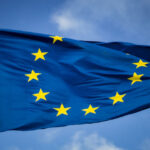
EFRAG is pleased to announce that it submitted the first set of draft ESRS to the European Commission yesterday in its role as technical adviser to the European Commission. This first set, approved by the EFRAG SRB, supported by the EFRAG SR TEG, takes into consideration the input from the public consultation on the draft ESRS EDs.
In April 2021, the European Commission adopted a legislative proposal for a Corporate Sustainability Reporting Directive (CSRD) that requires companies within its scope to report using a double materiality perspective in compliance with European Sustainability Reporting Standards (ESRS) adopted by the European Commission as delegated acts. Under the proposed CSRD, EFRAG was appointed technical adviser to the European Commission developing draft ESRS. This was confirmed by the text of 21 June resulting from the trilogue between the co-legislators and the text of 10 November 2022 approved by the European Parliament.
The ESRS Exposure Drafts (EDs) prepared by the EFRAG Project Task Force on European Sustainability Reporting Standards (EFRAG PTF-ESRS) during the period from June 2021 till April 2022 were exposed for comments from 30 April to 8 August 2022. The EFRAG Sustainability Reporting Board (EFRAG SRB), advised by the EFRAG Sustainability Reporting Technical Expert Group (EFRAG SR TEG), addressed the feedback of the consultation and amended accordingly the twelve draft ESRS that are released today to European Commission.
The European Commission will now consult EU bodies and Member States on the draft standards, before adopting the final standards as delegated acts in June 2023, followed by a scrutiny period by the European Parliament and Council.
The reporting requirements will be phased in over time for different kinds of companies. The first companies will have to apply the standards in financial year 2024, for reports published in 2025. Listed SMEs are obliged to report as from 2026, with a further possibility of voluntary opt-out until 2028, and will be able to report according to separate, proportionate standards that EFRAG will develop next year.
This first set of 12 draft ESRS is composed of:
- Cross-cutting standards:
- Draft ESRS 1 General requirements
- Draft ESRS 2 General disclosures
- Topical standards:
- Environment:
▪ Draft ESRS E1 Climate change
▪ Draft ESRS E2 Pollution
▪ Draft ESRS E3 Water and marine resources
▪ Draft ESRS E4 Biodiversity and ecosystems
▪ Draft ESRS E5 Resources and circular economy - Social:
▪ Draft ESRS S1 Own workforce
▪ Draft ESRS S2 Workers in the value chain
▪ Draft ESRS S3 Affected communities
▪ Draft ESRS S4 Customers and end-users - Governance:
▪ Draft ESRS G1 Business conduct
- Environment:
The publication of the draft standards is accompanied by: a Cover letter, a Due process note setting out the process applied and the main differences between the exposure drafts and the draft ESRS, an Explanatory note, including its Annex, of how draft ESRS take account of the initiatives and legislation listed in Article 1 (8) of the CSRD adding article 29 (b) -5 to the Accounting Directive, EFRAG’s Cover Letter on the Cost-benefit analysis of the First Set of draft ESRS, a Cost-benefit analysis of the First Set of draft ESRS prepared by CEPS and Milieu and six appendices. The bases for conclusions will be published in December.
Kerstin Lopatta, former EFRAG Acting SRB Chair, stated: “On behalf of the EFRAG SRB, as Acting Chair, it is my great pleasure to deliver today the first set of 12 draft European Sustainability Reporting Standards (ESRS) as Technical Advice to the European Commission. We can be proud of this outcome of a due process involving all European stakeholders since June 2021 and of this critical contribution to establishing sustainability reporting in the EU on robust foundations. Our goal has been to strike the right balance between a game-changing step forward and a pragmatic implementation and to foster global sustainability reporting progress while taking full account of the feedback received through our public consultation and deliberations. We are confident that we will all in due course benefit from this collective effort towards more transparency and accountability.”
Chiara Del Prete, EFRAG Acting SR TEG Chair, commented: “As EFRAG SR TEG Acting Chair and having led on the field the activities of the EFRAG Secretariat, I am today proud and honoured that EFRAG has accomplished his challenging mission to deliver to the European Commission the first Set of ESRS, following its multi-stakeholder due diligence process. I am particularly grateful to my fellow EFRAG SR TEG members who managed to reach a consensual approval in issuing the EFRAG SR TEG advice to the EFRAG SRB and, for their tireless support, to all the members of the EFRAG Secretariat.”
EFRAG will focus in the next months on set 2 of draft ESRS which are draft sector specific standards:
- 5 sectors covered by GRI: agriculture, coal mining, mining, oil+gas (upstream), oil+gas (mid-to downstream)
- 5 high-impact sectors: energy production, road transport, motor vehicle production, food/beverages, textiles.
Set 2 will include as well ESRS standards for SMEs.


